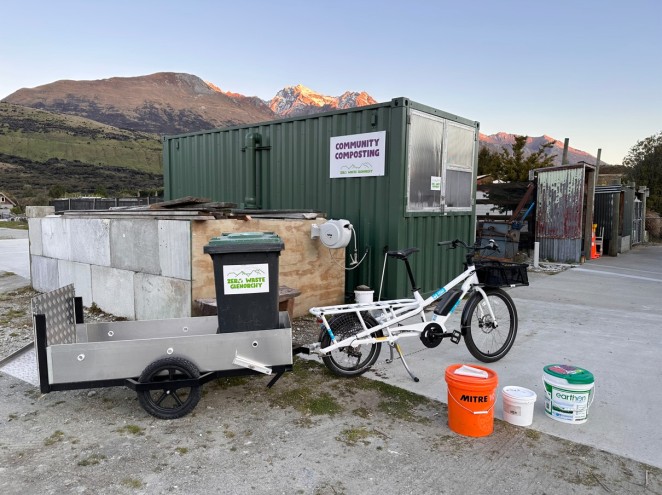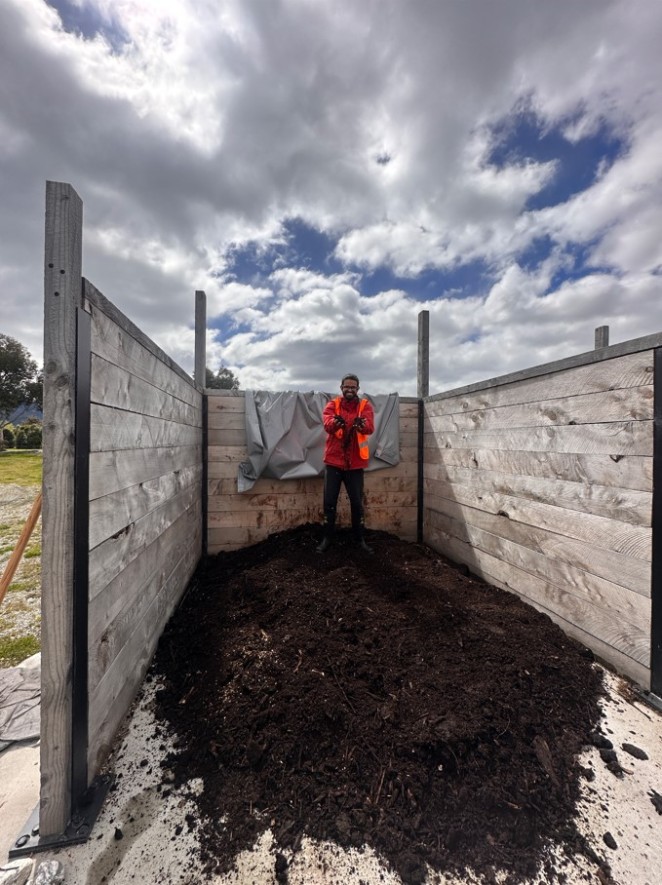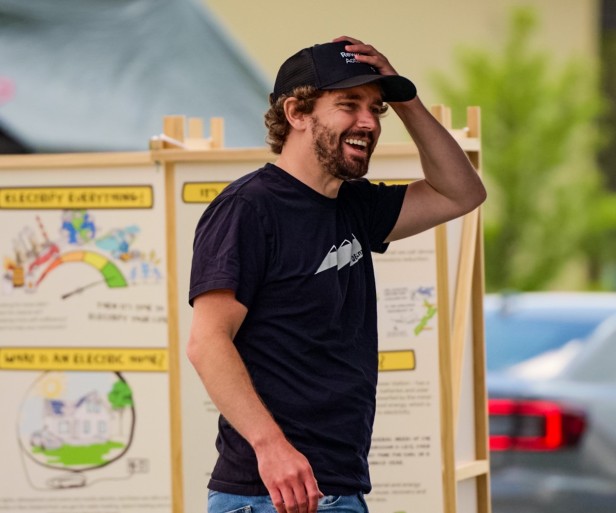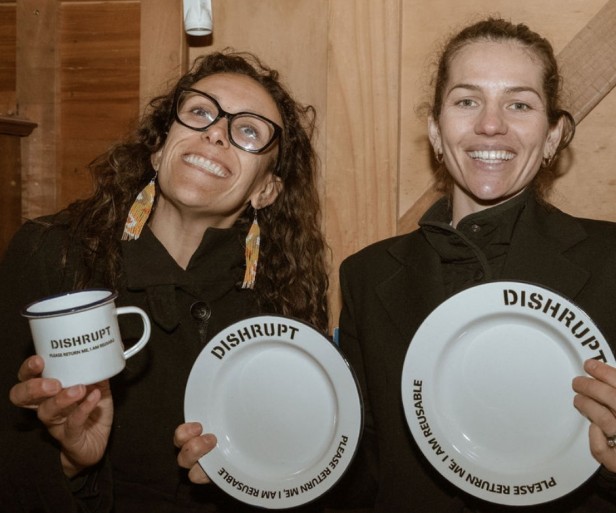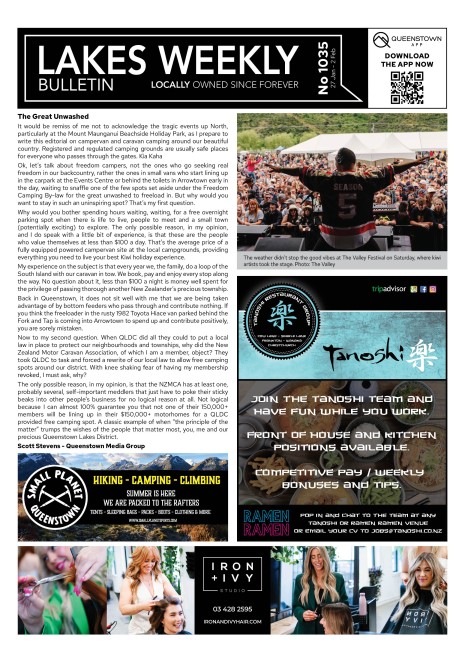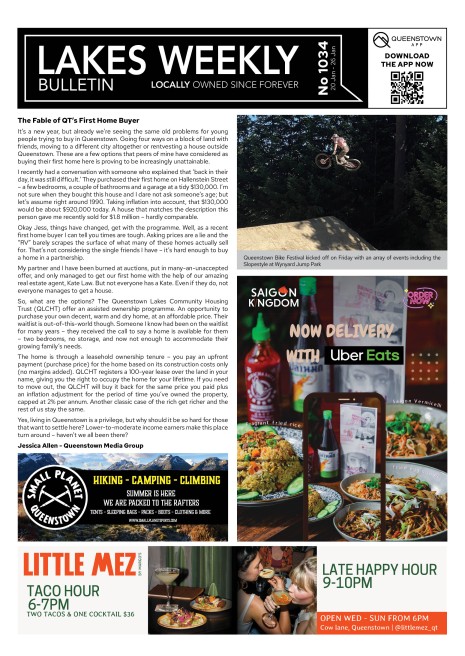Glenorchy leads the charge on community composting - pilot extended
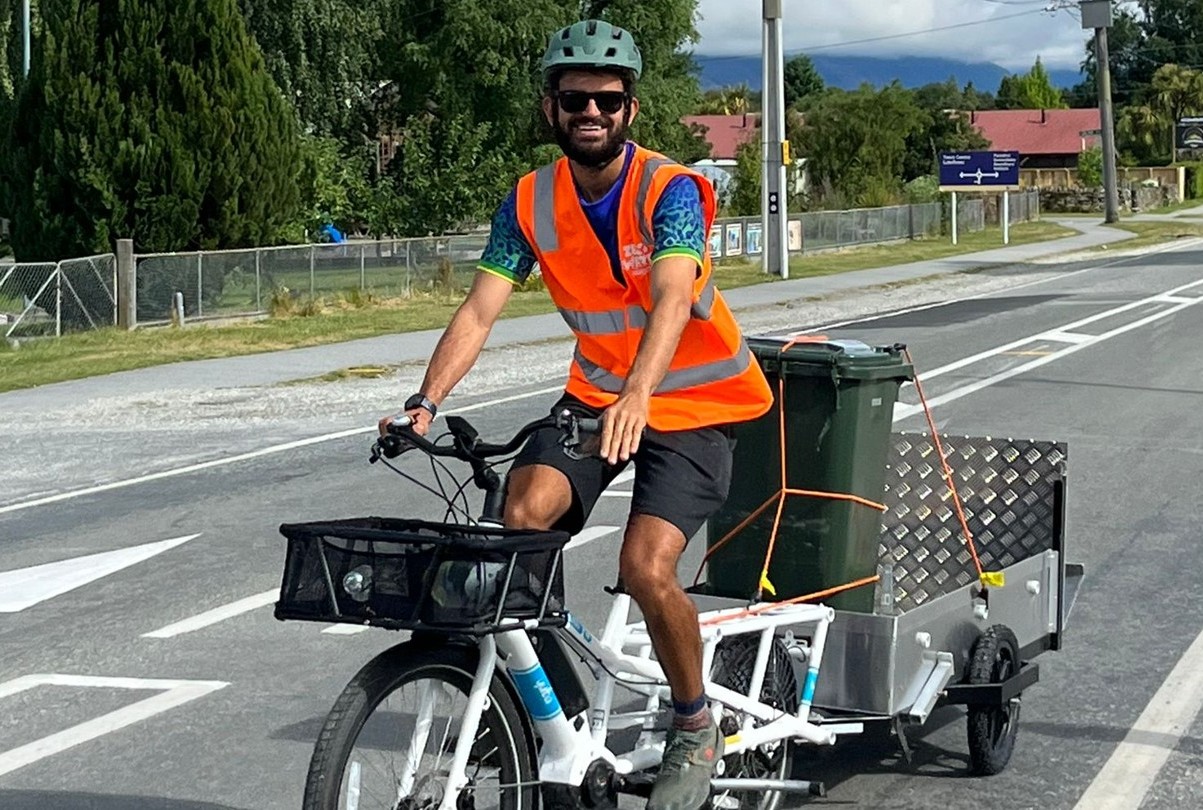
They may be relatively remote from the main urban areas but that hasn’t stopped the Glenorchy community from leading the charge in the southern region with its hugely successful door-to-door community composting programme.
An initial 12-month pilot funded by the Queenstown Lakes District Council, in conjunction with the Ministry for the Environment, has been extended to 18 months until June this year. Some 20 to 25 tonnes of organic food waste has already been diverted from the landfill in the first year.
Project manager Steve Hewland says there’s been great buy in from the community with residents leaving their supplied buckets with screw lids out weekly for operations manager and co-founder Zero Waste Glenorchy’s Dan Nagueria. Nagueria does his weekly kerbside collections on an e-bike towing a trailer with a skip bin on board. Commercial operators have also been collecting their waste and dropping it off.
Initially sponsored by The Headwaters Eco Lodge founders Paul and Debbi Brainerd who have always had a vision to create a composting facility, Hewland says they’ve kindly supplied the composting facility behind Mrs Woolly’s General Store.
Those who’ve collaborated with the project then collect the compost and use it in their home gardens. Some goes to the Glenorchy Native Plant Nursery and Mrs Woolly’s veggie garden with the produce sold in the store. “The restaurants and hotels drop off their organic waste to us and we collect from the smaller commercial operators,” Nagueria says. Blanket Bay drops off weekly and Aro Ha brings their waste in during winter.
Believed to be the only kerbside community composting project in Otago and Southland, outside of Dunedin, he says they’ve had huge interest from other towns and communities. “We’re pretty unique. We’ve had a guy come up from Riverton to see what we’re doing.” Restaurants growing their own food have also shown an interest.
“We’ve even got old school locals leaving out their waste. It’s been such a positive response.”
The council funded the initial $96,000 and thankfully, Nagueria says they’ve managed to keep hours down and perform well within budget. “It’s cost us way less than anticipated.”
That money covered staff, labour, materials, equipment, training, marketing, legal work, PPE, and insurance, along with regular testing of the compost.
Hewland says Zero Waste Glenorchy is hoping to attract further community trust funding to continue with the project from June. With further funding through the council unlikely to be available he’s hoping they can tap into some community trust funding to keep the momentum going.
“We will need $50,000 a year to keep it running, but that’s all looking positive,” he says.
Hewland, who built the composting facility for Headwaters, says it allows for composting of much more waste than a home system. “We can even take small bones, citrus, onion and garlic peelings, eggshells, paper tissues. We also add clean, shredded cardboard,” he says. “We get the odd knife and fork arriving in.” Compostable packaging and bags, even coffee cups, don’t perform well in the system, although they can be beneficial if ending up in the landfill.
Nagueria says the council’s keen for applications from any other small community groups or suburbs to get started on their community composting projects too. There’s a drop-off facility operation through Grow Wanaka and waste can be dropped off in a couple of other centres, but Glenorchy has paved the way for kerbside.
Education is the key and Hewland says they’ve been providing learnings back to the council and sharing the knowledge during school visits. “It’s about people learning and understanding the benefits of composting. It prevents greenhouse gases from being created in our landfills,” he says.
“It doesn’t have to be smelly. We haven’t had any odour issues. It can be done cleanly without attracting rats and mice.”
